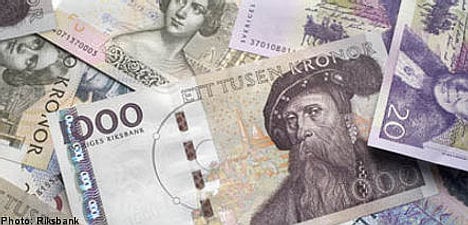In 2009, Sweden cut corporate taxes from 28 percent to 26.3 percent. However, similar moves by other countries in Europe and the rest of the world have left Sweden looking like a high-tax country for corporations.
According to the KMPG tax consultancy’s Corporate and Indirect Tax Survey 2010, the global average corporate tax rate dropped from 24.03 percent to 23.45 percent.
“The trend is clear, corporate taxes have dropped every year this decade, as long as we’ve been doing this study,” said Helena Robertsson, head of KPMG Sweden’s corporate tax business, in a statement
“The changes are incremental, but over ten years we’re talking about a drop of more than 7 percent.”
Corporate tax rates are an important incentive for attracting foreign investment. According to the survey, 18 European Union (EU) countries have lower corporate tax rates than Sweden.
EU countries with higher corporate tax rates than Sweden include the UK, Germany, and France.
According to Robertsson, many countries in Europe have made up for the loss in corporate tax income by raising other taxes, including value added taxes (VAT) charged to consumers when they make purchases.
“Swedish companies lose millions every year by mishandling VAT, for example. As VAT gets higher, the costs of not handling it correctly becomes all the more expensive,” said Robertsson.



 Please whitelist us to continue reading.
Please whitelist us to continue reading.
Member comments